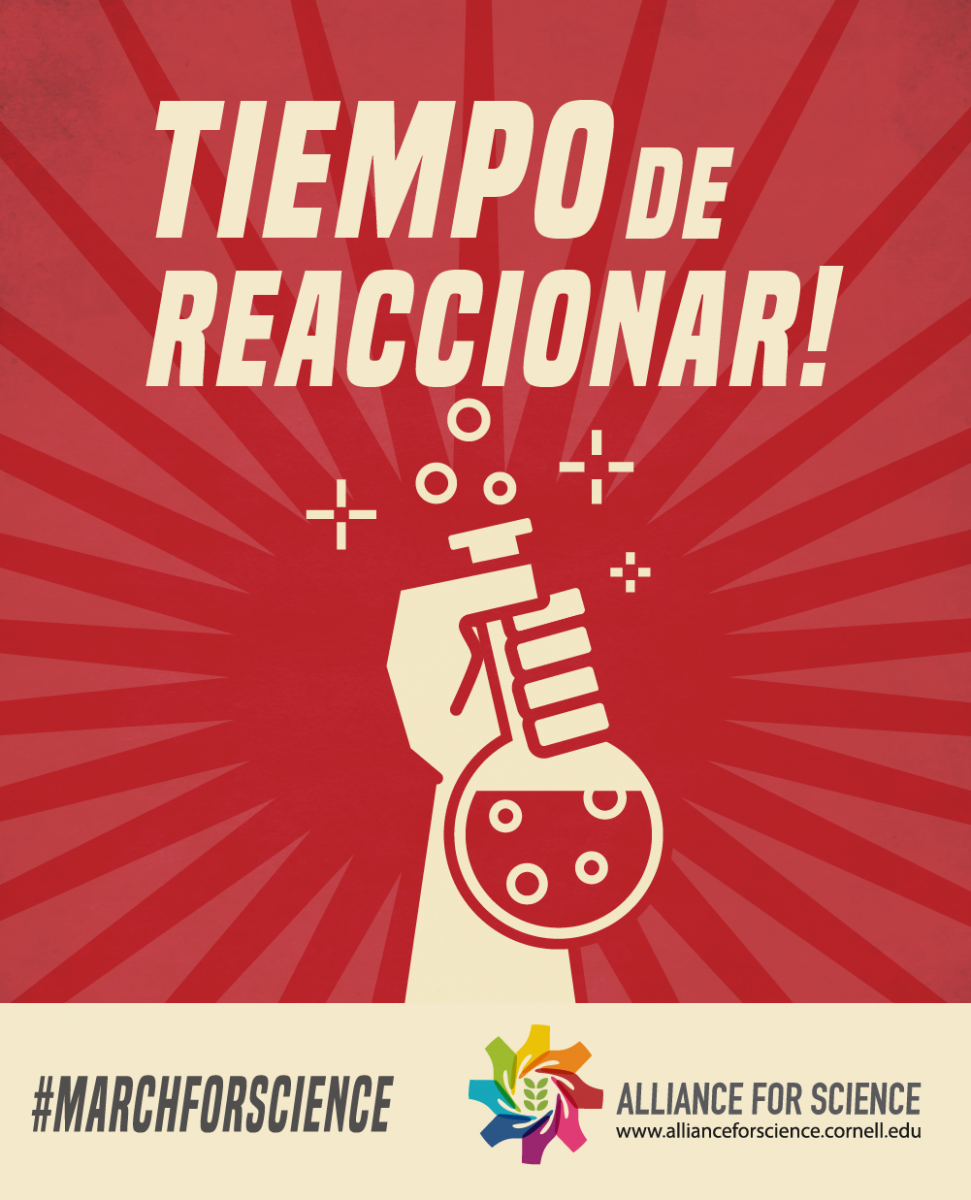
The Cornell Alliance for Science global network is planning to join the March for Science in key international locales on April 22, as well as Washington, D.C., and its home base of Ithaca, NY.
Science allies are organizing marches in the Philippines, Bangladesh, Uganda, Kenya, Nigeria, South Africa, Hawaii, Mexico, Venezuela, Chile, London and other places.
Bangladesh
Arif Hossain, a communications officer with the Feed the Future South Asia Eggplant Improvement Partnership and an Alliance for Science Global Leadership Fellow, is organizing the march in Dhaka: I believe in science, and to me this celebration is an inspiration and impulse to work for better health services, safer living, quality education and an enlightened future. I am marching to let the world know that we are united for science in Bangladesh. We have 160 million people to feed in the changed climate and together we will make a better day with science and innovation.
Philippines
Marshall Marlo Asis, an agricultural journalist and Global Leadership Fellow, is helping to organize the march at the Quezon Memorial Circle in Quezon City: As a historic first, the March for Science will serve as an agent of transformation in uniting Filipinos yearning for change with biotechnology at the heart of the discussion. Indeed for us, silence is no longer an option! It is high time to tell the world that good science intended for the common good must be once and for all accessible to those who need it most the hungry, the malnourished and the poor.
Uganda
Clet Wandui Masiga, a conservation biologist, geneticist and Global Leadership Fellow, is co-coordinating the march in Uganda: We have those people who know the truth about science, but they are silent. This silence is giving anti-science activists an opportunity to misinform the public. I am therefore going to march to show the world that I support and use science, and people should be allowed to have access to science to make decisions for themselves.
Mexico
Luis Ventura-Martinez, a biologist on the faculty of the National Autonomous University of Mexico and Global Leadership Fellow, is participating in the Mexico City march: I am for Mexico, and just like what is sadly happening in other developing countries, science is not a priority for our government, which recently reduced the financial support to science. We, the science allies, should show that no one deserves to be forgotten, that the science matters, and that we are here.
We need to call out for science, because science is not alone. And from across the silence, and from across the world, our voices will be heard. We need to do this not just for the scientists, but for everyone, for all of us.”
Nigeria
Nkechi Isaac, a Nigerian journalist and Global Leadership Fellow, is joining the march in Nigeria: At the current population of over 180 million people, Nigeria is faced with the risk of malnutrition and hunger because the conventional method of agriculture can no longer meet up with our demand. Science holds the solution to our food security.
Science is revolutionary. It holds the key to constant development and improvement for addressing climate change, food shortage and challenges in medicine. The March for Science provides an opportunity for scientists and science supporters to take a stand and highlight the immense benefits available for Nigeria in science.
Hawaii
Marches are planned on the islands of Oahu, Hawaii, Maui and Kauai, where Sarah Thompson, coordinator of the Hawaii Alliance for Science, will be participating: We are united in a love of science, an insatiable curiosity of it. We know that science is everywhere and affects everyone. We seek to build a grassroots network of like-minded individuals who support science and science-based decision making.
Remember to pick up your March for Science tee-shirts, social media materials and free downloadable posters at the Alliance for Science store.
